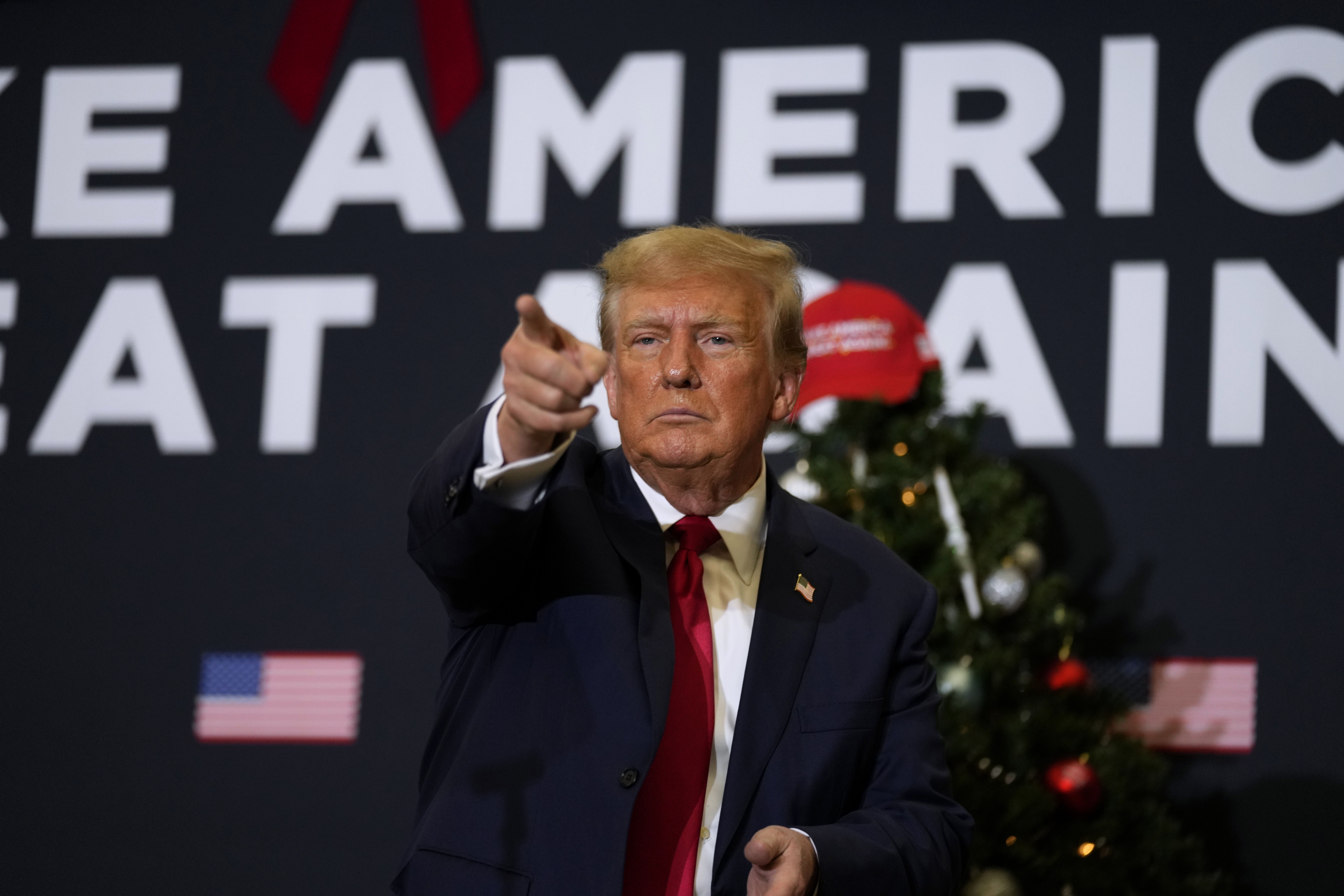
Donald Trump on Wednesday urged the Supreme Court to turn down special counsel Jack Smith’s invitation to rapidly consider the former president’s claim that he is immune from criminal prosecution for his efforts to subvert the 2020 election.
Repeatedly warning the justices to avoid “haste,” Trump’s lawyers skewered Smith for taking extraordinary steps to preserve the March 4, 2024, trial date without detailing why taking the case to a jury just over two months from now is so critical.
“In an omission that speaks volumes, the Special Counsel never explains why March 4, 2024, is supposedly the only ‘appropriate timetable’ for this historic prosecution,” Trump’s attorneys wrote. “That date has no talismanic significance.”
Though Trump’s attorneys attributed the special counsel’s silence to Smith’s supposedly “partisan” intent, another potential reason is obvious: If Trump wins in November and retakes the White House, he would assuredly order the Justice Department to end the two federal criminal cases pending against him. And the deeper Trump’s trial extends into 2024, the likelier that further delays could push it past the election.
The Trump submission cites a slew of speculation in media outlets ranging from CNN to the Wall Street Journal editorial page that the urgency is derived from prosecutors’ desire to convict Trump before the 2024 presidential election, although Smith and his deputies have never acknowledged that as a factor.
Indeed, Smith has said little in his team’s filings about why he’s urgently seeking to complete Trump’s trial next year. He’s instead made broad appeals to the “public interest” in a speedy trial. U.S. District Judge Tanya Chutkan, the trial judge who is presiding over the case, has similarly described the public urgency for a speedy trial, describing it as a vindication of the nation’s criminal justice system that should be untethered from concerns about the political calendar.
Still, Smith’s decision not to elaborate has allowed Trump to frame the motivation for a relatively quick trial as a transparent bid to damage President Joe Biden’s top political rival.
“The Special Counsel’s extraordinary request, combined with its vague, threadbare justification, creates the compelling appearance of a partisan motivation: To ensure that President Trump — the leading Republican candidate for President, and the greatest electoral threat to President Biden — will face a months-long criminal trial at the height of his presidential campaign,” Trump’s attorneys wrote.
Trump’s 44-page filing urged the justices to permit the D.C. Circuit Court of Appeals to consider the immunity issue first. That court, his lawyers noted, has already set an expedited schedule to receive legal arguments on the matter, which might end up back at the Supreme Court within a few weeks. Moving faster by skipping the appeals court as Smith has advocated would amount to “reckless abandon,” the Trump attorneys declared.
They also argued that Smith has no authority to seek Supreme Court review in the first place. That’s because U.S. District Court Judge Tanya Chutkan ruled in Smith’s favor, concluding that Trump is not immune from being charged with conspiring to derail the transfer of power.
If the justices do agree to hear the case, Trump’s attorneys asked them not to consider solely his claim that his former office as president renders him immune from prosecution related to Jan. 6, 2021, but also his argument that he can’t be prosecuted because he was impeached and not convicted for the same or “closely related” conduct.

 11 months ago
11 months ago








 English (US)
English (US)